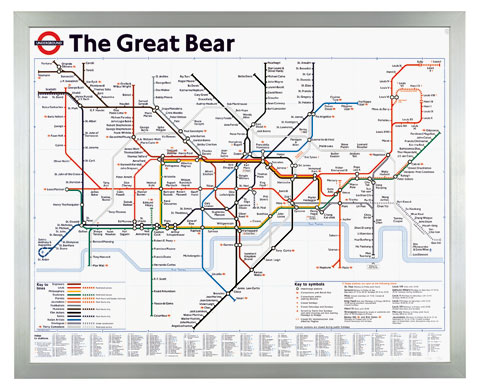This week in #rhizo14 we’re meant to be thinking about creativity. Some people are running with this and going and doing lots of lovely creative things, like this image on this, others are engaging with #ds106. I’ve been really busy catching up after a week off work, so I’ve limited myself to posting a few links to the Facebook group such as this one (love number 9) and this by Poincare.
I’d started thinking about creativity a few months ago, and gave a talk to our Research and Scholarship group called Collaboration in the Arts and Humanities:
[slideshare id=32889269&doc=collaborationintheartsandhumanities-140329132012-phpapp01]
In case you can’t be bothered to read it all, or it doesn’t make sense without the words I spoke, I talked about originality, creativity and plagiarism and suggested that there was a tension between the need to assess arts and humanities students and award them individual marks for assignments; and the fact that (imo) many of our social and academic practices are inherently collaborative – as Ken Bruffee writes:
I’m sure that Deleuze somewhere makes a similar point, but I have no idea where it might be … anyway, you get the point, I hope. Originality and creativity are not particularly easy to assess in a formal academic environment.
A related point to what I am trying to say is that we are not cartesian ghosts in machines, we are what Heidegger calls Dasein (this is a brilliant wee video, btw, and I highly recommend it):
[youtube http://www.youtube.com/watch?v=ZznldvBP-G8&w=560&h=315]
We are beings in the world – we are thrown into our embodied existence and we are naturally social beings (and I really should be hyphenating all of this).
This is all fairly rough and messy, and I have no idea how I will ever write it up into something that will satisfy formal academic standards, but I am starting to make connections between philosophers who have inspired me, at least.
Sapere Aude, as they say 😉



 So it’s week 9 of #rhizo14, but I have still not got around to saying anything about week 8 so here goes. The topic, set by Simon, was
So it’s week 9 of #rhizo14, but I have still not got around to saying anything about week 8 so here goes. The topic, set by Simon, was  Now, here, you see, it takes all the running you can do, to keep in the same place. If you want to get somewhere else, you must run at least twice as fast as that!
Now, here, you see, it takes all the running you can do, to keep in the same place. If you want to get somewhere else, you must run at least twice as fast as that!


![London Underground being used as an Air Raid Shelter Image by US Govt [Public domain], via Wikimedia Commons](http://94.136.40.103/~nomadwarmachine.co.uk/wp-content/uploads/2014/02/Blitz_West_End_Air_Shelter-240x300.jpg)


![Image by Mattgirling (Own work) [CC BY-SA 3.0 (http://creativecommons.org/licenses/by-sa/3.0) or GFDL (http://www.gnu.org/copyleft/fdl.html)], via Wikimedia Commons](http://94.136.40.103/~nomadwarmachine.co.uk/wp-content/uploads/2014/02/Eiffel_Tower-201x300.jpg)

![Image by Rémi Kaupp (Self-photographed) [GFDL (http://www.gnu.org/copyleft/fdl.html), CC-BY-SA-3.0 (http://creativecommons.org/licenses/by-sa/3.0/) or CC BY-SA 2.5-2.0-1.0 (http://creativecommons.org/licenses/by-sa/2.5-2.0-1.0)], via Wikimedia Commons](http://94.136.40.103/~nomadwarmachine.co.uk/wp-content/uploads/2014/02/Wooden_boat_wrecked-300x225.jpg)
 1. I love frogs. I grew up in the Peak District in a village called
1. I love frogs. I grew up in the Peak District in a village called 

